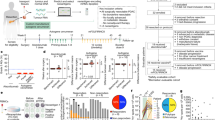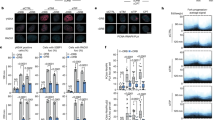Abstract
Adenoviral vector delivery of the Herpes simplex virus thymidine kinase (HSV-tk) gene in combination with the prodrug ganciclovir (GCV) has been tested in phase I clinical trials for prostate cancer and found to exhibit a satisfactory toxicity profile. We have developed additional adenoviral vectors with differing promoters to optimize the expression profile and in the present study evaluate the potential systemic toxicity of these vectors. Four recombinant adenoviral vectors that express the HSV-tk gene were generated using three different promoters: CMV (leftward orientation); RSV (both rightward and leftward orientation); and the mouse caveolin-1 (cav-1) promoter (leftward orientation). Efficacy was determined in vitro by cytotoxicity assays in a mouse prostate cancer cell line, RM-9, and in vivo by treating orthotopic tumors. Potential toxicity was evaluated from liver histology and apoptotic cell counts and enzyme levels in the serum following intravenous adenoviral vector injection. Although there were differences in HSV-tk expression at the protein level among the four vectors there were no significant differences in in-vitro cytotoxicity studies with GCV or in vivo in tumor growth suppression of an orthotopic mouse prostate cancer model in GCV treated mice. Intravenous delivery of high doses of all adenoviral vectors lead to abnormalities in liver function as measured by specific serum markers and histological evaluation of liver tissue and increased levels of apoptosis in the liver. These abnormalities were most prevalent with the vector containing the CMV promoter and the rightward oriented RSV promoter. They were least prevalent in the vector regulated by the cav-1 promoter. Upregulation of specific chemokines, MIP-2 and MIP-1β was correlated with apoptotic counts. Our results demonstrate that comprehensive toxicological analysis of adenoviral vectors provides internally consistent information that can differentiate vectors with comparable efficacy based on toxicity. In these studies vectors with the cav-1 promoter-driven and leftward RSV-driven HSV-tk gene demonstrated minimal toxicities with cytotoxic effectiveness comparable to more toxic vectors. Our studies further suggest that promoter selection can influence the toxic effects of an adenoviral gene therapy vector.
This is a preview of subscription content, access via your institution
Access options
Subscribe to this journal
Receive 4 print issues and online access
$259.00 per year
only $64.75 per issue
Buy this article
- Purchase on Springer Link
- Instant access to full article PDF
Prices may be subject to local taxes which are calculated during checkout










Similar content being viewed by others
References
Thompson TC . In situ gene therapy for prostate cancer Oncol Res 1999 11: 1–8
Shalev M et al. Gene therapy for prostate cancer Urology 2001 57: 8–16
Eastham JA et al. Prostate cancer gene therapy: herpes simplex virus thymidine kinase gene transduction followed by ganciclovir in mouse and human prostate cancer models Hum Gene Ther 1996 7: 515–523
Hall SJ et al. Adenovirus-mediated herpes simplex virus thymidine kinase gene and ganciclovir therapy leads to systemic activity against spontaneous and induced metastasis in an orthotopic mouse model of prostate cancer Int J Cancer 1997 70: 183–187
Hall SJ et al. Cooperative therapeutic effects of androgen ablation and adenovirus-mediated herpes simplex virus thymidine kinase gene and ganciclovir therapy in experimental prostate cancer Cancer Gene Ther 1999 6: 54–63
Herman JR et al. In situ gene therapy for adenocarcinoma of the prostate: a phase I clinical trial Hum Gene Ther 1999 10: 1239–1249
Shalev M et al. Suicide gene therapy toxicity after multiple and repeat injections in patients with localized prostate cancer J Urol 2000 163: 1747–1750
Miles BJ et al. Prostate-specific antigen response and systemic T cell activation after in situ gene therapy in prostate cancer patients failing radiotherapy Hum Gene Ther 2001 12: 1955–1967
Ayala G et al. Cytopathic effects of in situ gene therapy in prostate cancer Hum Pathol 2000 31: 866–870
Teh BS et al. Phase I/II trial evaluating combined radiotherapy and in situ gene therapy with or without hormonal therapy in the treatment of prostate cancer—a preliminary report Int J Radiat Oncol Biol Phys 2001 51: 605–613
Klatzmann D et al. A phase I/II dose-escalation study of herpes simples virus type 1 thymidine kinase “suicide” gene therapy for metastatic melanoma. Study Group on Gene Therapy of Metastatic Melanoma Hum Gene Ther 1998 9: 2585–2594
Klatzmann D et al. A phase I/II study of herpes simplex virus type 1 thymidine kinase “suicide” gene therapy for recurrent glioblastoma. Study Group on Gene Therapy for Glioblastoma Hum Gene Ther 1998 9: 2595–2604
Rodriguez R et al. Prostate attenuated replication competent adenovirus (ARCA) CN706: a selective cytotoxic for prostate-specific antigen-positive prostate cancer cells Cancer Res 1997 57: 2559–2563
Freytag SO et al. A novel three-pronged approach to kill cancer cells selectively: concomitant viral, double suicide gene, and radiotherapy Hum Gene Ther 1998 9: 1323–1333
Hitt MM, Graham FL . Adenovirus vectors for human gene therapy Adv Virus Res 2000 55: 479–505
Galanis E, Vile R, Russell SJ . Delivery systems intended for in vivo gene therapy of cancer: targeting and replication competent viral vectors Crit Rev Oncol Hematol 2001 38: 177–292
Muruve DA, Barnes MJ, Stillman IE, Libermann TA . Adenoviral gene therapy leads to rapid induction of multiple chemokines and acute neutrophil-dependent hepatic injury in vivo Hum Gene Ther 1999 10: 965–976
van der Eb MM et al. Severe hepatic dysfunction after adenovirus-mediated transfer of the herpes simplex virus thymidine kinase gene and ganciclovir administration Gene Ther 1998 5: 451–458
Kaneko S et al. Adenovirus-mediated gene therapy of hepatocellular carcinoma using cancer-specific gene expression Cancer Res 1995 55: 5283–5287
Wills KN et al. Gene therapy for hepatocellular carcinoma: chemosensitivity conferred by adenovirus-mediated transfer of the HSV-1 thymidine kinase gene Cancer Gene Ther 1995 2: 191–197
Brand K et al. Tumor cell-specific transgene expression prevents liver toxicity of the adeno-HSVtk/GCV approach Gene Ther 1998 5: 1363–1371
Gotoh A et al. Development of human prostate cancer J Urol 1998 160: 220–229
Koeneman KS et al. Osteocalcin-directed gene therapy for prostate-cancer bone metastasis World J Urol 2000 18: 102–110
Pramudji C et al. In situ prostate cancer gene therapy using a novel adenoviral vector regulated by the caveolin-1 promoter Clin Cancer Res 2001 7: 4272–4279
Yang G et al. Elevated expression of caveolin is associated with prostate and breast cancer Cliin Cancer Res 1998 4: 1873–1880
Nasu Y et al. Suppression of caveolin expression induces oxygen androgen sensitivity in metastatic androgen-insensitive mouse prostate cancer cells. [See comments.] Nat Med 1998 14: 1062–1064
Thompson TC, Southgate J, Kitchener G, Land H . Multistage carcinogenesis induced by ras and myc oncogenes ina reconstituted organ Cell 1989 56: 917–930
Baley PA et al. Progression to androgen insensitivity in a novel in vitro mouse model for prostate cancer J Steroid Biochem Mol Biol 1995 52: 403–413
Gavrieli Y, Sherman Y, Ben-Sasson SA . Identification of programmed cell death in situ via specific labeling of nuclear DNA fragmentation J Cell Biol 1992 119: 493–501
Chen SH et al. Gene therapy for brain tumors: regression of experimental gliomas by adenovirus-mediated gene transfer in vivo Proc Natl Acad Sci USA 1994 91: 3054–3057
Goodman JC et al. Adenoviral-mediated thymidine kinase gene transfer into the primate brain followed by systemic ganciclovir: pathologic, radiologic, and molecular studies Hum Gene Ther 1996 7: 1241–1250
Timme TL et al. Local inflammatory response and vector spread after direct intraprostatic injection of a recombinant adenovirus containing the herpes simplex virus thymidine kinase gene and ganciclovir therapy in mice Cancer Gene Ther 1998 5: 74–82
Nasu Y et al. Combination gene therapy with adenoviral vector-mediated HSV-tk+GCV and IL-12 in an orthotopic mouse model for prostate cancer Prostate Cancer Prostat Dis 2001 4: 44–55
Trask TW et al. Phase I study of adenoviral delivery of the HSF-tk gene and ganciclovir administration in patients with current malignant brain tumors Mol Ther 2000 1: 195–203
Timme TL et al. Caveolin-1 is regulated by c-myc and suppresses c-myc-induced apoptosis Oncogene 2000 19: 3256–3265
Perricaudet LD, Makeh I, Perricaudet M, Briand P . Widespread long-term gene transfer to mouse skeletal muscles and heart J Clin Invest 1992 90: 626–630
Wang J, Bucana C, Roth J, Zhang W . Apoptosis induced in human osteosarcoma cells is one of the mechanisms for the cytocidal effect of Ad5CMV-p53 Cancer Gene Ther 1995 2: 9–17
Nyberg-Hoffman C et al. Sensitivity and reproducibility in adenoviral infectious titer determination Nat Med 1997 3: 808–811
Mittereder N, March KL, Trapnell BC . Evaluation of the concentration and bioactivity of adenovirus vectors for gene therapy J Virol 1996 70: 7498–7509
Nasu Y et al. Adenovirus-mediated interleukin-12 gene therapy for prostate cancer: suppression of orthotopic tumor growth and pre-established lung metastases in an orthotopic model Gene Ther 1999 6: 338–349
Serfling E, Jasin M, Schaffner W . Enhancers and eukaryotic gene transcription Trends Genet 1985 1: 224–230
Addison CL, Hitt M, Kunsken D, Graham FL . Comparison of the human versus murine cytomegalovirus immediate early gene promoters for transgene expression by adenoviral vectors J Gen Virol 1997 78: 1653–1661
Driesse MJ et al. Intracerebral injection of adenovirus harbouring the HSVtk gene combined with ganciclovir administration: toxicity study in nonhuman primates Gene Ther 1998 5: 1122–1129
Lozier JN et al. Toxicity of a first-generation adenoviral vector in rhesus macaques Hum Gene Ther 2002 13: 113–124
Morral N et al. Lethal toxicity, severe endothelial injury, and a threshold effect with high doses of an adenoviral vector in baboons Hum Gene Ther 2002 13: 143–154
Borgland SL et al. Adenovirus vector-induced expression of the C-X-C chemokine IP-10 is mediated through capsis-dependent activation of NF-kappaB J Virol 2000 74: 3941–3947
Bowen GP et al. Adenovirus vector-induced inflammation: capsid-dependent induction of the C-C chemokine RANTES requires NF-kappaB Hum Gene Ther 2002 13: 367–379
Zhang Y et al. Acute cytokine response to systemic adenoviral vectors in mice is mediated by dendritic cells and macrophages Mol Ther 2001 3: 697–707
Acknowledgements
This work was supported by Specialized Program for Research Excellence (SPORE) grant from NCI (P50-58204) and the use of facilities at the Houston Veterans Affairs Medical Center.
Author information
Authors and Affiliations
Corresponding author
Rights and permissions
About this article
Cite this article
Ebara, S., Shimura, S., Nasu, Y. et al. Gene therapy for prostate cancer: toxicological profile of four HSV-tk transducing adenoviral vectors regulated by different promoters. Prostate Cancer Prostatic Dis 5, 316–325 (2002). https://doi.org/10.1038/sj.pcan.4500610
Received:
Accepted:
Published:
Issue Date:
DOI: https://doi.org/10.1038/sj.pcan.4500610



